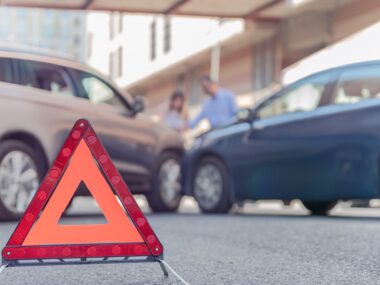This coverage steps in when your vehicle is being repaired after a covered accident, ensuring you have access to a rental car during the downtime. For just a few extra dollars a month, rental reimbursement insurance can save you from the hassle and high costs of securing alternative transportation.
Whether you rely on your car for commuting, running errands or managing a busy family schedule, this coverage provides peace of mind by keeping you on the road without significant financial strain.
However, rental reimbursement insurance isn’t for everyone. If you live in an area with reliable public transportation, have access to a second vehicle or work from home, this coverage might be unnecessary.
Additionally, the coverage limits-typically between $20 to $50 per day-might not fully cover the cost of a rental car, especially if repairs take longer than expected. Before adding rental reimbursement insurance to your policy, it’s essential to weigh the potential benefits against your specific needs and circumstances.
Rental reimbursement insurance is an add-on to your standard auto insurance policy that covers the cost of a rental car while your vehicle is being repaired after a covered accident. If your car is damaged in a collision, this insurance steps in to pay for a rental vehicle, so you’re not left scrambling to find alternative transportation.
How Does Rental Reimbursement Insurance Work?
Rental reimbursement insurance kicks in when your vehicle is involved in an accident that’s covered by your existing auto policy. Here’s a step-by-step breakdown of how it works:
-
Accident Happens: Let’s say you’re involved in an accident. Your car gets damaged and you need to get it repaired.
-
Claim is Filed: You file a claim with your auto insurance company. If the accident is covered under your policy, the insurance company will approve the repairs needed for your vehicle.
-
Activate Rental Reimbursement: Once the claim is approved and your car is sent to the shop, you can activate your rental reimbursement insurance. This allows you to rent a car and the insurance will cover the daily rental costs up to a specified limit.
-
Payment Process: The insurance company either reimburses you for the rental costs after you pay out of pocket or pays the rental company directly, depending on the insurer’s process.
What Does Rental Reimbursement Insurance Cover?
Now, let’s talk about the nuts and bolts of what rental reimbursement insurance actually covers:
-
Rental Car Costs: The primary purpose of rental reimbursement insurance is to cover the cost of renting a car while yours is being repaired. The coverage typically includes a set amount per day, usually ranging from $20 to $50 and can last for a specific number of days-often up to 30 days.
-
Comprehensive and Collision Claims: Rental reimbursement insurance generally covers accidents that fall under both comprehensive and collision coverage. This means it covers damages from events like theft, vandalism, fire or natural disasters, as well as collisions with other vehicles.
-
Direct Payments to Rental Companies: In many cases, the insurance company will have agreements with specific rental car providers. This allows them to pay the rental company directly, so you don’t have to deal with upfront costs.
What Rental Reimbursement Insurance Does Not Cover
Despite its many benefits, rental reimbursement insurance isn’t without its limitations. Here’s what it typically doesn’t cover:
-
Non-Accident Repairs: If your car is in the shop for regular maintenance or non-accident-related repairs, rental reimbursement insurance won’t cover the cost of a rental vehicle. This coverage is strictly for repairs resulting from covered accidents.
-
Extended Rentals: If your car repairs take longer than the maximum number of days covered by your policy (usually 30 days), you’ll be responsible for any additional rental costs beyond that period.
-
High-End Rental Cars: Most rental reimbursement insurance policies have daily limits, usually around $20 to $50 per day. If you choose a rental car that exceeds this daily limit, you’ll have to pay the difference out of pocket.
-
Accidents Without Collision or Comprehensive Coverage: If you don’t have collision or comprehensive coverage on your vehicle, rental reimbursement insurance won’t be of much use to you. It only kicks in when a covered event triggers your need for a rental car.
The Pros of Rental Reimbursement Insurance
Rental reimbursement insurance can be a lifesaver, but is it right for everyone? Let’s weigh the pros:
-
Peace of Mind: Perhaps the biggest advantage is the peace of mind it offers. Knowing that you won’t be stuck without transportation after an accident is invaluable, especially if you rely on your vehicle for daily commutes or errands.
-
Cost-Effective: Rental reimbursement insurance is typically inexpensive, often costing just a few dollars per month. Considering the potential costs of renting a car out of pocket, this coverage can pay for itself many times over if you ever need to use it.
-
Convenience: With rental reimbursement insurance, there’s no need to scramble to find transportation after an accident. You can quickly and easily secure a rental car without worrying about the financial impact.
-
Flexibility: Many insurers allow you to choose your coverage limits, so you can tailor the policy to fit your needs and budget. This flexibility ensures you have the right amount of coverage without paying for more than you need.
The Cons of Rental Reimbursement Insurance
While rental reimbursement insurance has its perks, it’s not without downsides. Here are some cons to consider:
-
Limited Use: The most significant drawback is that rental reimbursement insurance only applies in specific situations-namely, when your car is in the shop due to a covered accident. It won’t help you with other transportation needs, making it somewhat limited in its usefulness.
-
Coverage Caps: The daily and total caps on coverage can be restrictive, especially if repairs take longer than expected or if you need a more expensive rental vehicle. If you’re not careful, you could end up paying out of pocket.
-
Redundancy for Some: If you already have access to another vehicle or public transportation, rental reimbursement insurance might be unnecessary. In these cases, adding this coverage to your policy could be redundant and an extra expense you don’t need.
-
Complex Claims Process: Some people find the claims process for rental reimbursement to be cumbersome, especially if their insurer requires them to pay upfront and get reimbursed later. This can be an inconvenience, particularly in the stressful aftermath of an accident.
Is Rental Reimbursement Insurance Worth It?
Rental reimbursement insurance is one of those coverages that seem minor until you need it. But is it worth adding to your auto policy? The answer depends on a few key factors.
If you rely heavily on your vehicle for daily activities-whether it’s commuting to work, shuttling kids around or running errands-then rental reimbursement insurance could be a wise investment. It’s an affordable way to ensure you’re not left without transportation in the event of an accident.
On the other hand, if you have access to alternative transportation or a second car or if you live in an area with reliable public transit, you might not need this coverage. For some drivers, the potential savings of not adding rental reimbursement insurance might outweigh the risks.
When to Consider Rental Reimbursement Insurance
Rental reimbursement insurance isn’t a one-size-fits-all solution. Here are some situations where it might be especially beneficial:
-
Long Commutes: If you have a long commute and rely on your vehicle daily, the peace of mind offered by rental reimbursement insurance is invaluable. It ensures you won’t miss work or be forced to take costly rideshares while your car is in the shop.
-
Single-Car Households: If you only have one vehicle and no backup options, rental reimbursement insurance can be a lifesaver. It prevents you from being stranded without transportation during repairs.
-
Frequent Travelers: If you frequently travel by car and can’t afford to be without one, rental reimbursement insurance can help you stay on the road, even when your primary vehicle is temporarily out of commission.
-
Busy Families: Families with busy schedules-school drop-offs, extracurricular activities and other commitments-might find rental reimbursement insurance essential. It keeps life running smoothly, even when your car is in the shop.
Don’t Overlook Rental Reimbursement Insurance
While it might not be the first thing that comes to mind when shopping for auto insurance, rental reimbursement insurance is a small but mighty add-on that can make a big difference when you need it most. It’s affordable, convenient and provides a safety net that ensures you’re never left without transportation after an accident.




